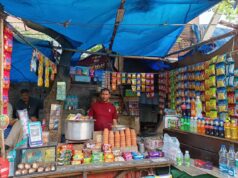The outcome of Policy Roundtable with MPs organized by Centre for Civil Society on 18 Nov 2009, Delhi:
Set up Central Empowered Committee: We recommend Central Government to set up a ‘Central Empowered Committee’ to help Governments of all the States, Union Territories and Local Authorities to ensure effective implementation of the National Urban Street Vendors Policy 2009. The Committee should work as a facilitating organization to Governments of the States, Union Territories and Local Authorities to deal with the obstacles faced in the implementation of the policy. Here are a few major functions that we recommend the Empowered Committee to take up:
- Facilitating the Governments of all the States and Union Territories to issue a Gazette Order to implement the policy in the respective States and Union Territories. The Gazette Order should give necessary directions to all concerned departments to implement the policy effectively within a time frame.
- Since the National Policy serves only as a guideline, we strongly recommend the Empowered Committee to work with the Governments of all the States and Union Territories to come up with a ‘Bill on Street Vending’ in their respective States and Union Territories. The Governments of all the States and Union Territories can follow the ‘Model Street Vendors (Protection of Livelihood and Regulation of Street Vending) Bill 2009’ which has already been drafted by Ministry of Housing and Urban Poverty Alleviation, New Delhi.
- Empanel reputed and credible NGOs and other professional institutions having experience of working on the issues of Street Hawkers and Vendors. We recommend the Central Government to issue guidelines mentioning various ways in which such NGOs and other professional institutions can be engaged in a productive way.
- Facilitating Local Authorities to form Town Vending Committees on the basis of participatory and democratic values. The Empowered Committee can organize workshops to address the obstacles faced by the Authorities. We also recommend formation of several ‘Ward Vending Committees’ in case of big cities such as A1 and A class cities which includes Mumbai, Kolkata, Chennai, Hyderabad, Bangalore etc rather than having only one Town Vending Committee for the entire city.
- Facilitating Governments of all the States and Union Territories various ways to deal with crucial issues regarding the effective implementation of the policy such as space management and demarcation of land etc. Regarding this the Empowered Committee can organize workshops etc. for implementing authorities.
- Facilitating Annual National Conference for all the Municipal Commissioners, Mayors and Police Authorities to discuss the steps taken by them and to present the progress report and the problems faced regarding implementation of the policy. It can also come with Annual Journal documenting success and showcasing the changes on ground.
- Spreading awareness among the vendors about the ‘National Urban Street Vendors Policy 2009’. Various tools of mass media such as Television, Radio programs etc. should be used for this as being done in the case of Right to Information.
Exemption of Street Entrepreneurs under the Section 283 and 431 of Indian Penal Code and Section 34 of Police Act: It has been noticed by organizations and institutes working with Street Vendors that authorities have not been use some sections of the law, specifically section 283 of Indian Panel Code and Section 34 of Police Act, in the same spirit with which they have been formed. They instead use them as weapons to harass Street Vendors. We recommend Central Government to modify section 283 of Indian Panel Code and work with Governments of all the States and Union Territories to exempt Street Vendors under different sections of State Police Acts.
Post Disclaimer
The opinions expressed in this essay are those of the authors. They do not purport to reflect the opinions or views of CCS.





